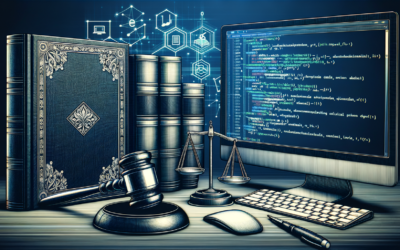Compliance & Legal Software
At a time when the digitalization of the legal profession is making itself increasingly felt, compliance and legal software are taking on a key role. It is becoming essential to understand the impact of these tools on the practice of law, and how they contribute to the good governance of companies and law firms.
What is compliance and legal software?
Legal compliance refers to all the processes put in place by entities to ensure compliance with legal, regulatory and ethical standards at all levels of the organization. Legal software is designed to facilitate, automate and optimize the management of legal activities, whether in accounting, billing, customer relations or legislative monitoring.
The importance of compliance in the legal sector
Compliance has become a major issue for law firms and corporate legal departments. It minimizes legal and financial risks, while enhancing customer reputation and confidence. Dedicated tools, such as legal technology software, are essential for keeping abreast of legislative developments.
Accounting and billing software
Lawyer accounting and invoicing software are invaluable allies in ensuring impeccable financial management. They enable compliant bookkeeping and simplify invoicing procedures, in line with current standards.
Legal CRM
A legal CRM helps manage customer relationships and ensure personal data compliance with regulations such as the RGPD. It optimizes communication and exchanges between the firm and its customers, while securing sensitive information.
The contribution of artificial intelligence to compliance
Artificial intelligence in law is revolutionizing compliance by offering predictive tools and advanced data analysis. Thanks to these technologies, lawyers can concentrate on high value-added tasks, while AI takes care of repetitive compliance checks.
Automating legal tasks
Automating legal tasks reduces the risk of human error and increases efficiency. Software dedicated to automation facilitates the updating of legal documents and contracts, ensuring their ongoing compliance.
Frequently asked questions
Here is a list of frequently asked questions for Compliance and Legal Software.
What are the advantages of using legal software?
The benefits include improved efficiency, reduced risk of errors, regular updating in line with the legal framework, and improved customer relations via customer relationship management systems such as law firm CRMs.
Are law firms obliged to comply with specific standards?
Yes, law firms are subject to strict ethical standards, legal regulations and accounting obligations. Legal platform tools can greatly facilitate compliance with standards.
How does legal software contribute to RGPD compliance?
Legal software such as CRM incorporates dedicated data protection features, helping law firms to comply with RGPD requirements, while effectively managing their customer data.




